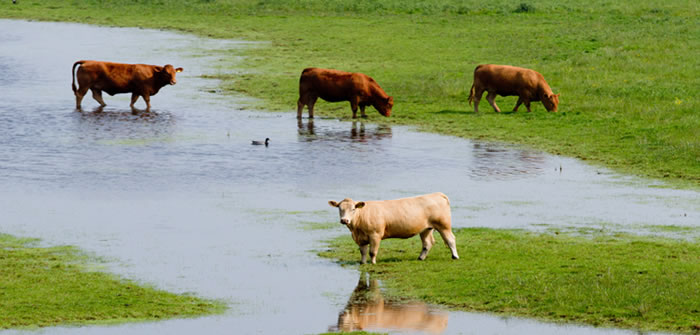With heavy snow and rain forecast this winter, vets have are urged owners to take precautionary measures to protect livestock. This follows last year’s British Veterinary Association survey finding that in areas affected by flooding, a third of vets working with livestock or horses had clients who lost stock due to extreme conditions.
“Field flooding can happen suddenly, at any time, in the days after a deluge of rain. If fields are prone to flooding then, where possible, it’s advised that owners move their livestock ahead of time,” said a BVA spokesman.
Veterinary organisations warn that flooded and muddy fields pose health and welfare hazards for cattle, sheep, goats and other livestock, with 23% of vets in last year’s flood-affected areas reporting problems due to animals being cut off from food and a further 27% of vets seeing cases of flood-related lameness.
“Standing in water and deep mud can predispose animals to, and exacerbate, infections and diseases, such as foot rot, so vets are advising owners to ensure their fields have suitable drainage and an area where animals can stand out of the mud or damp,”says the BVA.
“Wet, muddy fields also provide an ideal habitat for the tiny snail involved in the maintenance of the life cycle of liver fluke.
“After flood water recedes, owners should also inspect pastures and streams for potentially hazardous plants or other material that may have been deposited. Examples include the roots of water dropwort, which may be exposed after heavy water flow or rainfall and may be highly toxic to grazing animals.”


